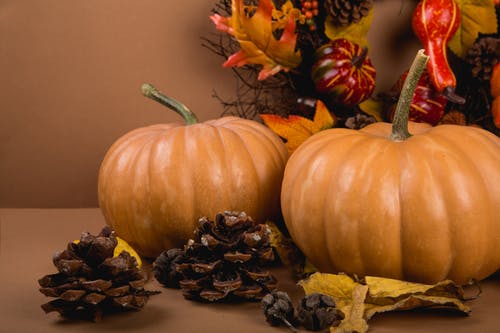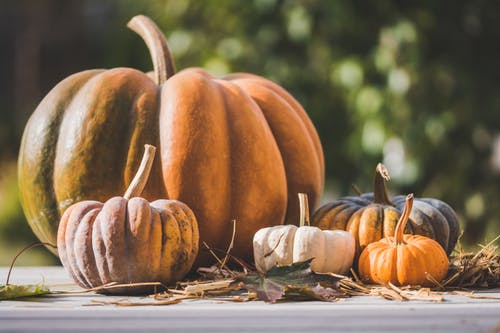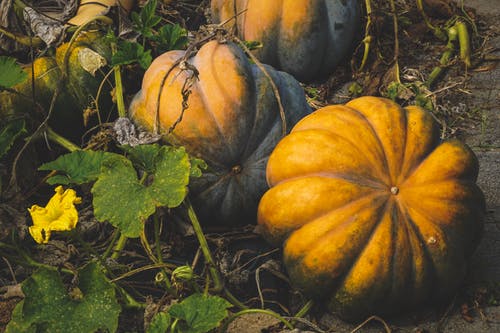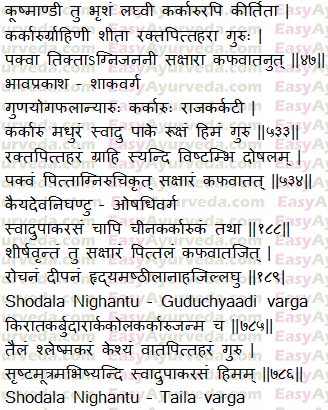Pumpkin – Benefits, Remedies, Recipes, Oil, Nutrition and Research

By Dr Renita D’Souza
Pumpkin a nutritious vegetable included in our diet possessing various health benefits. Pumpkin fruit is a natural coolant. It is used as a remedy for fatigue, body-ache, loose stools, intestinal worm infestation etc. It has beneficial effect on teeth, throat and eye. Seeds are considered as good brain tonic.

Botanical Name – Cucurbita pepo
Synonyms – Cucurbita mammeata Molina
Family – Cucurbitaceae
Read – Winter Melon Health Benefits, Medicinal Use, Side Effects
Table of Contents
Vernacular Name
Sanskrit Name – Kooshmandi
Hindi Name – Kumhara, Saphed kaddu, Kumda
Bengali Name – Saada kumhara
Marathi Name – Kaula, Kohala
Tamil Name – Parangi
Bengali Name – Safed kaddu, Lanka
Malayalam Name – Mattana
Telugu Name – Gummadi kaya
Kannada name – Sihi kumbala kayi
Manipuri Name – Mairen
Oriya Name – Kakharu
Assamese Name – Rangalao
Spanish Name – calabaza; zapallo
French Name – cocozelle, courge, courgette, pepon
Chinese Name – meiguo nan gua; zhong guo
Portuguese Name – abóbora
Medicinal Qualities
Taste (rasa) – sweet
Vipaka (taste conversion after digestion) – sweet
Grahi – absorbent, constipating in nature
Ruksha – dry in nature
Potency (virya) – Cold
Guru – heavy to digest
Vishtambhi – causes constipation
Syandi – causes moistness and discharges from channels
Effect on Tridoshas
Doshalam – increases all tridosha – vata, pitta and kapha dosha
Read – Bottle Gourd Uses, Home Remedies, Side Effects, Research
Ripe Pumpkin
Taste – Bitter
Agnijanani – improves digestion power
Sakshara – alkaline in nature
Ruchikrit – improves taste
Effect on Tridoshas
Balances Kapha and Vata dosha
Increases pitta dosha

Benefits
- Pumpkin fruit is used to cure fatigue, thirst, cold, ache, throat and eye infection. It purifies the blood.
- In children it cures excess body fat, gastric problems and irritable bladder.
- Pumpkin seeds are used to treat irritable bladder and prostatic complains. They are anti-parasitic, taenicide and diuretic.
- Seeds have beneficial effect on spleen, lungs and kidney. Treats gastritis, burns, chest pain, thirst, enteritis, bronchitis, fever, headaches, neuralgia, hemorrhoids, anemia, constipation etc
- Leaves are easy for digestion. They are used as a remedy for nausea, fever, pain, biliousness, bladder disorders, stomach upsets, intestinal worms, bed-wetting, rheumatism, benign prostatic hyperplasia (BPH), burns and wounds.
- Fruit stalk is used to cure heart burn.
- Regular usage of pumpkin seeds is known to cure prostate cancer.
- Seeds are also used as a remedy for whooping cough in small children. They are also used in malnutrition and improves breast milk production.
- Whole plant is used to treat bronchial asthma, cough, edema, headache, cold, heart diseases, lung infection, piles, arthritis and fever. It is good for bloody and purulent phlegm, night blindness and habitual miscarriage.(c)
Read – Sponge Gourd: Benefits, Usage, Research, Remedies, Side Effects
Home Remedies
- In Taenicide (tape worm infestation), 30-60 grams of seeds are pounded, mixed with milk and honey. This is consumed for empty stomach. Later purgative medicines are given to the patient.
- Leaves paste is used in burns and biliousness. On external application, it relieves burning sensation and pain.
- Sap of the plant and the pulp of the fruit can be used for burns.
- In intestinal inflammation, the fruit pulp decoction is used.
- Fresh fruit juice mixed with rose extract is used as ear drops to cure otitis.
- For gastro intestinal problems, fruit boiled in water is served with salt and black pepper.
- To treat the umbilical cord in baby, the whole plant extract is used for bathing two times daily.(d)
Read – Pointed Gourd Health Benefits, Usage – Ayurveda Details
Pumpkin Oil (Karkaru taila)
Qualities, Uses
Taste – Sweet
Vipaka (taste post digestion) – sweet
Guru – heavy to digest
Potency (virya) – cold
Keshya – good for hair
Effect on tridoshas
Vatapittahara – balances vata and pitta dosha
Shleshmakara – increases kapha dosha
Pumpkin seed oil is nutritious and a excellent source of protein. It is considered good for heart and a rich source of minerals, dietary fiber, vitamins and mono-unsaturated fatty acids. The minerals mainly zinc, phosphorous, magnesium, potassium and selenium present in pumpkin seeds makes it the excellent source of nutrients. Hence pumpkin seeds are known as nutritional powerhouse and used to fight against the diseases such as arthritis, inflammation, prostate cancer etc.
(read a review article on health benefits of pumpkin seeds)
Pumpkin Seed oil for hair
Oil extrated from the seeds of pumpkin are known to regrow hair. It improves hair strength and prevents hair fall.
For its hair benefits, a few drops of hair oil is applied over the scalp root, on a daily basis. If applied before bed night, it also helps with good sleep.
It can also be applied 30 minutes before hair wash, once or twice a day.
Pumpkin oil for skin – It improves face glow, complexion and useful as a moisturizer. For its benefits, a few drops of the oil is taken on the finger tips and gently rubbed over the face. It is left on the face for 5 – 10 minutes and washed off with soap and water or besan powder.
Pumpkin oil side effects:
Its use on face is not recommended for people with naturally oily skin. Such people can apply only 2 – 3 drops of the oil and wash off within 5 minutes.
Recipes
Pumpkin is famously used for preparing idli,
It is used for preparing Sambar (thick vegetable rasam, mixed with rice and consumed).
Its Sabji is also prepared per south Indian cuisine.
It is boiled, added with sugar and heating is continued till a semi solid halva is prepared.
Sanskrit Verses


Interaction with medicines, supplements
Can this be used while taking Homeopathic medicine?
Yes. This product does not react with homeopathic medicine.
Can
this medicine be continued while taking supplements like multivitamin tablets,
Omega 3 fatty acids etc?
Yes. Generally, this product goes well with most
of the dietary supplements. However, if you are taking more than one product
per day, please consult your doctor for an opinion.
With western
medicines
Seek your
doctor’s advice if you are taking this product along with other western
(allopathic / modern) medicines. Some Ayurvedic herbs can interact with modern
medicine.
If both Ayurvedic and allopathic medicines are advised together, then it is
best to take Allopathic medicine first, wait for 30 minutes and then take the
Ayurvedic medicine.
Nutritional Values
Cucurbita pepo is rich in calories, fat, carbohydrates, fiber, protein, vitamin A, Vitamin C, potassium, copper, manganese, magnesium, phosphorus, zinc, riboflavin, Vitamin E, iron, folate, Niacin, pantothenic acid, vitamin B6, B2 (read more)
Pharmacological Activities
Cucurbita pepo possess hepatoprotective, inhibit benign prostatic hiperplasia, antioxidant, anticancer, antimicrobial, anti-inflammatory, anti-diabetic and anti-ulcer activities.(a)
Chemical Constituents
Cucurbita pepo seeds contain phytostearin, salicylic acid, fatty oil, sterols, cucurbitine and stigmasta-7,24 (28)-dien-3betanol. Stem and leaf contains alkaloids, ulcer preventing vitamin U. Flower contains flavonol glycerides. Its pollen and stigma contain flavonoids.(b)
Morphology, Distribution
Morphology
Cucurbita pepo is an annual climbing plant with 5 angled scabrous stems growing up to up to 5 meters long. Leaves are simple, alternate, palmately lobed. Flowers are unisexual and yellow in color. Fruits are berries and variable in shape, color and size. Fruit varies from 30 grams to 50 kg and each fruit bears seeds. Fruit skin can be white, yellow, light to dark green, nearly black, cream or orange. The flesh is also variable in color (white, yellow, orange) and thickness.
Distribution
Cucurbita pepo is grown widely in temperate and tropical zones. It is native to North America.
Read – Bitter Sponge (Luffa echinata) Home Remedies: Headache, Liver Disorders
Ayurvedic Medicine
Dhathu Kalpa Legiyam – It is a classical Siddha medicine used in sexual disorders, increases sperm count and seminal secretion. It also increases breast milk production.
Research
Antioxidant and anti depression activity – A research study done to evaluate anti depressant like activity Cucurbita pepo seed extract in rats have proved that the seed extract possess significant antioxidant and anti depression properties.
Anthelmintic Activity – A research study done to evaluate anthelmintic activity of pumpkin seeds and pomegranate peels extracts against Ascaridia galli have proved their significant anthelmintic activity. The study also showed that pumpkin seeds ethanolic extract was more effective than pomegranate peels aqueous extract in vivo.
Sanskrit Synonyms
Kushmaandi, Karkaaru, Raja karkati
Categorization
Classical categorization
Bhavaprakasha Nighantu – Shaaka varga
Kaiyadeva Nighantu – Aushadhi varga
Shodala Nighantu – Guduchyaadi varga
Scientific Classification
Kingdom – Plantae
Phylum – Spermatophyta
Sub-phylum – Angiospermae
Class – Dicotyledonae
Order – Violales
Family – Cucurbitaceae
Genus – Cucurbita
Species – Cucurbita pepo
Pumpkin flowers, raw
Taste – sweet
Properties – light (low calorie count, promote weight loss)
Potency – cold (mildly diuretic)
After digestion taste transformation ( Vipaka ) – sweet
Effect on Doshas
Vata balancing (aids bone formation)
Pitta balancing (due to cold potency)
Kapha nourishing (boosts immunity)
Pumpkin flowers, cooked, boiled, drained, without salt
Taste – sweet
Properties – light (low calorie count, promote weight loss)
Potency – cold (mildly diuretic)
After digestion taste transformation ( Vipaka ) – sweet
Effect on Doshas
Vata balancing (aids bone formation)
Pitta balancing (due to cold potency)
Kapha nourishing (as boiling and draining makes it more light)
Pumpkin, flowers, cooked, boiled, drained, with salt
Taste – sweet, slightly salty
Properties – light (low calorie count, promote weight loss)
Potency – not very cold (salt is hot in potency)
After digestion taste transformation ( Vipaka ) – sweet
Effect on Doshas
Vata balancing (aids bone formation)
Pitta nourishing (salt is pittakara)
Kapha nourishing (as boiling and draining makes it more light)
Pumpkin leaves, raw
कूष्माण्डशाकं गुरु सन्निपातज्वरामशोफानिफलदाहहारि |
वह्निप्रदं रोचनमुष्णवीर्यं कफे च पित्ते च हितं सरं स्यात् ||५३१|| (kayyadevanighantuoshadivarga)
Taste – sweet
Properties – heavy
Potency – hot
After digestion taste transformation ( Vipaka ) – sweet
Effect on Doshas
Vata balancing
Pitta nourishing
Kapha nourishing
Pumpkin leaves, cooked, boiled, drained, without salt
Taste – sweet
Properties – not very heavy
Potency – hot
After digestion taste transformation ( Vipaka ) – sweet
Effect on Doshas
Vata balancing
Pitta nourishing
Kapha neutral (due to reduced heaviness)
Pumpkin leaves, cooked, boiled, drained, with salt
Taste – sweet, slightly salty
Properties – not very heavy
Potency – hot
After digestion taste transformation ( Vipaka ) – sweet
Effect on Doshas
Vata balancing
Pitta nourishing (salt is also Pittakara)
Kapha neutral (due to reduced heaviness)
Pumpkin, raw
कूष्माण्डं शीतलं वृष्यं स्वादुपाकरसं गुरु |
हृद्यं रूक्षं रसस्यन्दि श्लेष्मलं वातपित्तजित् ||५२७| (Kayyadevanighantu oshadhivarga)
Taste – sweet
Properties – heavy, dry
Potency – cold
After digestion taste transformation ( Vipaka ) – sweet
Effect on Doshas
Vata balancing
Pitta balancing
Kapha increasing
Pumpkin, cooked, boiled, drained, without salt
Taste – sweet
Properties – not very heavy (as it is boiled and drained), dry
Potency – cold
After digestion taste transformation ( Vipaka ) – sweet
Effect on Doshas
Vata balancing
Pitta balancing
Kapha nourishing (due to decreased heaviness)
Pumpkin, cooked, boiled, drained, with salt
Taste – sweet, slightly salty
Properties – not very heavy (as it is boiled and drained), dry
Potency – not very cold (salt is hot in potency)
After digestion taste transformation ( Vipaka ) – sweet
Effect on Doshas
Vata balancing
Pitta nourishing (salt is Pittakara)
Kapha nourishing (due to decreased heaviness)
Pumpkin, canned, without salt
Taste – sweet
Properties – not very heavy (as it is boiled before canning), dry
Potency – cold
After digestion taste transformation ( Vipaka ) – sweet
Effect on Doshas
Vata balancing
Pitta balancing
Kapha nourishing (due to decreased heaviness)
Pumpkin, canned, with salt
Taste – sweet, slightly salty
Properties – not very heavy (as it is boiled before canning), dry
Potency – not very cold (salt is hot in potency)
After digestion taste transformation ( Vipaka ) – sweet
Effect on Doshas
Vata balancing
Pitta nourishing (salt is Pittakara)
Kapha nourishing (due to decreased heaviness)
Pumpkin pie mix, canned
Ingredients: Pumpkin, water, sugar, salt, spices, dextrose, natural flavours.
Taste – sweet, slightly pungent
Properties – not very heavy
Potency – not very cold (as spices are hot)
After digestion taste transformation ( Vipaka ) – sweet
Effect on Doshas
Vata balancing
Pitta nourishing (pumpkin is Pitta balancing, but spices and salt increase Pitta)
Kapha nourishing
Seeds, pumpkin and squash seed kernels, dried
Taste
– sweet
Properties – heavy (dried, helps in weight gain)
Potency – cold (may cause indigestion if not chewed properly)
After digestion taste transformation ( Vipaka ) – sweet
Effect on Doshas
Vata balancing (gives relief from constipation)
Pitta nourishing (improves eyesight)
Kapha increasing
Seeds, pumpkin and squash seed kernels, roasted, without salt
Taste – sweet
Properties – not very heavy (roasting makes it lighter)
Potency – cold (may cause indigestion if not chewed properly)
After digestion taste transformation ( Vipaka ) – sweet
Effect on Doshas
Vata balancing (gives relief from constipation)
Pitta nourishing (improves eyesight)
Kapha nourishing (due to reduced heaviness
Click to Consult Dr Renita D’Souza











One comment
Ravi
You have written Hindi name of pumpkin as Saphed Kaddu but I think the one which is used for making “Petha” sweet is called Saphed Kaddu and not the one considered in this article. Pumpkin is also known as Sitaphal in some regions.